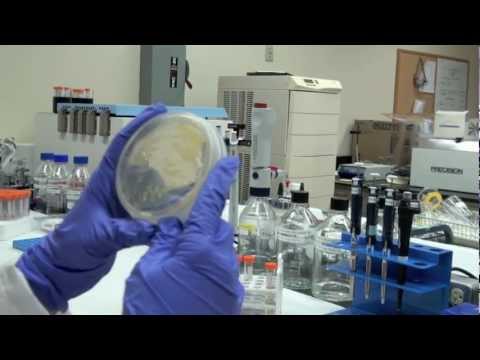Exploring Nature’s Wonders: Biologist Job Description and Salary

Biologist Job Description Template
Biologist Job Description Biologists are scientific professionals who study living organisms and their interactions with the environment. They analyze the structure, function, behavior, and evolution of various species to gain a deeper understanding of life processes. Biologists work in a wide range of settings, including research laboratories, universities, government agencies, and environmental organizations. The primary responsibilities of biologists include conducting experiments, collecting and analyzing data, and interpreting research findings. They design and implement experiments to investigate biological phenomena and develop theories based on their observations. Biologists also use advanced technologies and equipment to study cells, DNA, and other biological components. Fieldwork is an important aspect of a biologist’s job. They may spend significant time outdoors, collecting samples, studying wildlife, and observing ecosystems. This fieldwork provides essential data for research projects and contributes to the understanding of biodiversity and ecosystem dynamics. Additionally, biologists are often involved in disseminating their findings through scientific publications, presentations, and collaborations with other researchers. They may also contribute to the development of policies and regulations related to conservation, health, and environmental protection. Two important skills for biologists are critical thinking and problem-solving. Biologists must analyze complex data and apply their knowledge to solve biological puzzles. They also need strong communication skills to effectively convey their research findings to both scientific and non-scientific audiences. In conclusion, biologists play a crucial role in advancing scientific knowledge and contributing to various fields such as medicine, conservation, and agriculture. Their work is vital for understanding the complexities of life and finding solutions to global challenges.Biologist Responsibilities
Biologist Requirements
- A bachelor’s degree in biology or a related field
- Strong foundation in core biological concepts and principles
- Knowledge of scientific research methods and techniques
- Ability to analyze and interpret data accurately
- Excellent problem-solving and critical-thinking skills
- Good communication skills, both written and verbal
- Attention to detail and strong observational skills
- Ability to work independently and as part of a team
- Good organizational and time management skills
- Proficiency in using laboratory equipment and conducting experiments
- Knowledge of computer software and data analysis tools
- Understanding of ethical guidelines and safety protocols in biological research
- Continued learning and staying updated with advancements in the field
How Much Does A Biologist Make?
Biologist Salary
| Position | Average Salary |
|---|---|
| Research Assistant | $35,000 |
| Laboratory Technician | $45,000 |
| Wildlife Biologist | $55,000 |
| Ecologist | $60,000 |
| Geneticist | $70,000 |
A biologist’s salary can vary depending on their position and experience. The table above provides average salary figures for various roles within the field of biology. Research assistants typically earn around $35,000 per year, while laboratory technicians can expect an average salary of $45,000. Wildlife biologists earn slightly higher, with an average salary of $55,000, while ecologists earn around $60,000. Geneticists, who often require advanced degrees and specialized knowledge, have the highest average salary at $70,000.
Biologist Salaries by Country
Top Paying Countries for Biologist
| Country | Average Salary (USD) |
|---|---|
| United States | 80,000 |
| Switzerland | 75,000 |
| Australia | 70,000 |
| Germany | 65,000 |
| Canada | 60,000 |
Biologists are highly valued professionals in various countries around the world. The table above showcases the top paying countries for biologists based on their average salaries. The United States leads the list, offering an average salary of $80,000 per year. Switzerland follows closely with an average salary of $75,000, while Australia, Germany, and Canada also provide competitive salaries ranging from $60,000 to $70,000. These countries not only offer attractive financial compensation but also provide excellent research and job opportunities for biologists. As the field of biology continues to advance, the demand for skilled biologists remains high, making these countries ideal destinations for those seeking lucrative careers in the biological sciences.
A video on the topic Biologist
Video Source : USAGovInterview Questions for Biologist
1. What is the role of a biologist?
A biologist studies living organisms and their relationship with their environment. They conduct research, perform experiments, and analyze data to gain a better understanding of the natural world.
2. What are the different branches of biology?
Some branches of biology include molecular biology, ecology, genetics, microbiology, botany, zoology, and physiology.
3. What skills are important for a biologist?
Important skills for a biologist include strong analytical and problem-solving skills, attention to detail, good communication skills, critical thinking, and proficiency in scientific methods and laboratory techniques.
4. What is the significance of biodiversity?
Biodiversity refers to the variety of life forms and ecosystems on Earth. It is important because it contributes to ecosystem stability, provides valuable resources, supports food production, and has aesthetic, cultural, and recreational value.
5. How do biologists contribute to conservation efforts?
Biologists play a crucial role in conservation efforts by studying endangered species, assessing the impact of human activities on ecosystems, developing conservation strategies, and promoting sustainable practices.
6. What is genetic engineering?
Genetic engineering is the manipulation of an organism’s genetic material to alter its characteristics or introduce new traits. It involves techniques such as gene editing, gene insertion, and gene deletion.
7. What is the process of evolution?
Evolution is the process by which populations of organisms undergo changes over successive generations. It occurs through the mechanisms of mutation, natural selection, genetic drift, and gene flow.
8. How does photosynthesis work?
Photosynthesis is the process by which green plants and some other organisms convert sunlight, carbon dioxide, and water into glucose (a form of sugar) and oxygen. This process takes place in the chloroplasts of plant cells.
9. What are stem cells?
Stem cells are undifferentiated cells that have the ability to develop into different types of cells in the body. They play a vital role in growth, development, and tissue repair.
10. How does the human immune system work?
The human immune system is a complex network of cells, tissues, and organs that work together to defend the body against harmful pathogens. It involves mechanisms such as the production of antibodies, activation of immune cells, and memory response.






